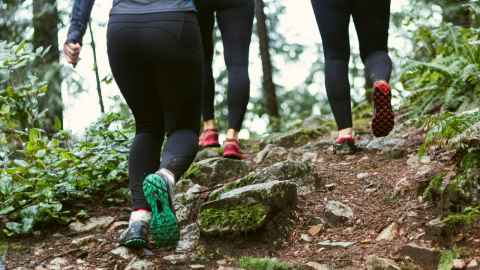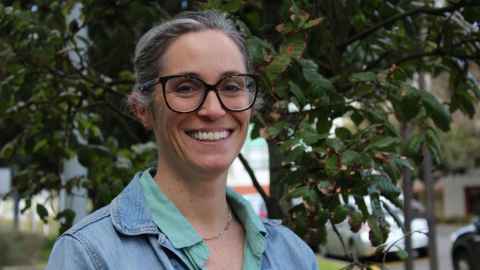Can women dodge hot flushes and brain fog?
26 November 2025
The relationship between lifestyle behaviours and menopause symptoms is the hot topic of a new study at the University of Auckland.

Participants are needed for a survey on menopause symptoms being run by Waipapa Taumata Rau, University of Auckland senior lecturer in exercise sciences, Dr Rebecca Meiring.
She is seeking 400 participants for an online survey – What women want: Knowledge, attitudes, and barriers in women aged 40 plus.
Meiring is examining the relationship between symptoms of peri- and post-menopause and diet, physical activity, where people get health information from, and what they understand about that information.
The research aims to discover what types of lifestyle interventions might help with menopause symptoms, such as hot flushes, anxiety, depression, brain fog, and dry eyes and skin.
Women are generally less active than men, because of limited access to safe places to exercise, social expectations and mental health challenges, says Meiring, who is supported by the University’s Centre for Co-Created Ageing.
“Exercise is recommended to help women with common symptoms of menopause, but just under half of women in New Zealand are meeting physical activity guidelines,” says Meiring.
More older women than men don’t get enough protein and calcium in their diet, exacerbating the loss of muscle and bone mass that occurs as oestrogen levels drop after menopause, she says.
“This can lead to joint issues, a higher risk of falling, and a lower quality of life.
“Women live longer and, as they get older, they tend to have more health problems than men, so they’re an important group who need effective ways to improve their health and well-being.”

For the study, women aged 40 and over are being asked to take a survey and wear an accelerometer – a small, lightweight device – on their leg for a week.
The device measures time spent sleeping, sitting, standing, and moving over 24 hours.
“We want to learn more about how women in Aotearoa move and what helps or hinders physical activity in daily life.
“The aim is to address any barriers and find out how to design lifestyle interventions for women going through menopause and after menopause,” says Meiring.
She has held four listening events to hear from women about their experiences and needs as they go through menopause.
The main issue raised was the need for a trustworthy source of information, because the internet offers a confusing plethora of differing opinions on health topics, says Meiring.
“Women said there isn’t enough support during menopause, that there are gaps in health and community support services.”
Meiring plans to hold a series of co-creation sessions with women, after the survey concludes.
Information shared at these sessions will shape the interventions Meiring’s team develops to help address menopause symptoms and health problems after menopause.
“Rather than designing interventions for women, we’re co-creating this research with women, so we can create lasting, effective solutions that help reduce health inequities for women,” she says.
Meiring is also seeking participants for research into osteoarthritis and exercise – read more.
For more information contact: rebecca.meiring@auckland.ac.nz
Media contact
Rose Davis | Research communications adviser
M: 027 568 2715
E: rose.davis@auckland.ac.nz